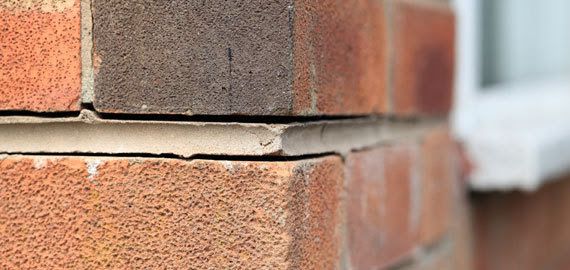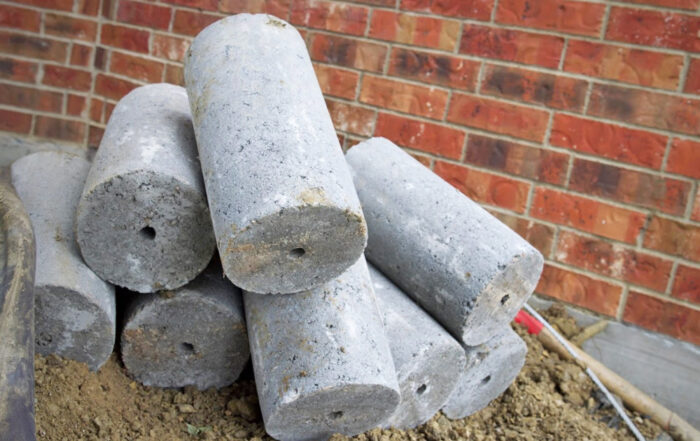When to Be Concerned About Cracks in Your Foundation (Homeowners Guide)

The first sign of foundation cracking can be an alarming sight for homeowners.
Wondering if the integrity of your home is compromised is a terrible feeling.
Don’t panic yet. There are many different types of foundation cracks that can occur in Texas homes, some of which can be more severe than others. Let’s dive in and figure out if the cracks in your foundation are something you should be concerned about. So here’s our two-cents on whether or not you need foundation repair.
Most homes built from concrete, brick, and block start to sustain some foundation cracks over time. However, any cracking in a home’s foundation must always be carefully monitored to head off possible costly foundation repair costs if a problem is left unchecked. Early treatment of foundation cracks helps prevent more excessive damage to the home.
What Causes Cracks in a Foundation?
Your home’s foundation usually starts to crack excessively because of soil settling issues or poor drainage. Often the first indications that a problem has started are noticed inside the home. If the doors of the house start to stick, cracks in the drywall occur, flooring separates or cracks, and windows become difficult to open or close, there might be a problem manifesting in the foundation.
What to Look for When Inspecting a Foundation For Cracks
Start with a visual inspection of the home’s foundation and walls. Look down the length of the house and foundation. Does it look relatively straight or is there evidence of bowing, bulging or curving? If you notice any shift in the home’s walls and foundation this might be the first clue that the soil around the house has started to expand or contract from seasonal changes. As the soil shifts, excessive pressure may be exerted on the home’s foundation and walls. Over time, the home’s foundation cannot take the pressure and will manifest itself as a crack.
If your home has a crawl space, look for any standing water or overly moist soil. If you see puddles this could indicate poor drainage in the soil beneath the home. Other causes of moisture are leaking pipes or plugged gutters. Ideally, the area in a crawl space should always be dry. If water or moisture is detected, further investigations need to be performed to identify the source of the moisture.

Types of Foundation Cracks:
- Hairline Cracks occur in the mortar between bricks or concrete blocks. Some hairline cracks are natural and usually no cause for alarm.
- Stair-Step Cracks look like stair steps in the home’s mortar and may be a cause for concern if the cracks measure more than a 1/4 in width and the wall or foundation is bulging. Stair-step cracks usually occur when there is a moisture problem in the soil around the home’s foundation.
- L-Shaped Cracks occur where the foundation slants down a hillside or other incline, usually caused by shrinkage. These cracks should be filled to keep moisture from seeping in and causing further damage.
- Horizontal Cracks in a home’s foundation usually indicate a severe problem. Often such cracks occur if the soil near the foundation becomes excessively moist and then freezes. The expansion of the frozen soil puts pressure on the home’s foundation and causes it to crack and cave in on itself. In areas of the country, such as Texas, where the soil contains a large amount of clay, soil expands excessively when saturated and shrinks when dry during times of drought. Such an ongoing soil issue frequently causes the home’s foundation to fail and you may need foundation repairs.
What Should I Do When I Find Foundation Cracks?
A professional can evaluate the foundation cracks and soil conditions around the home to determine how severe the problem is and what is required to correct the issues. Normally, having proper drainage around your home is the key component in maintaining a healthy, long-lasting foundation.
At Perma Pier, we’ll look closely at your home’s foundation and the soil conditions around your home’s perimeter so we can offer a custom repair solution for your specific foundation issue. In some instances, you may not even need a repair. When you’re ready to have those cracks definitively ruled out one way or the other, contact us for your evaluation.



